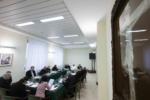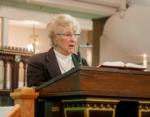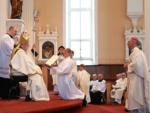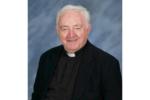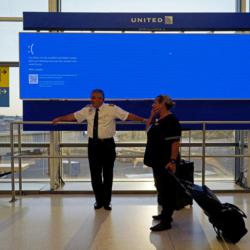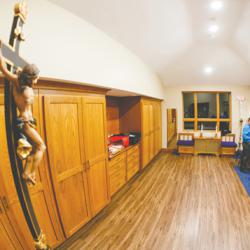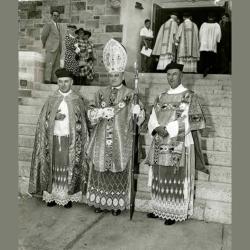With few pilgrims, Jerusalem's Christians pray for peace amid subdued Good Friday commemorations
JERUSALEM (OSV News) -- With a heavy police presence but few pilgrims, Jerusalem's normally crowded Franciscan Good Friday Via Crucis and later funeral procession made its way down the Via Dolorosa, the route Jesus is believed to have walked to his crucifixion, led in hymns by the Catholic scouts.
In Jerusalem, Good Friday is marked with the commemoration of the Passion on Calvary and the Via Crucis in the morning, followed by the imitation of the Passion in the funeral procession, in the evening.
As the war between Hamas and Israel nears the six month point, the celebration was subdued and rather than the traditional scout’s marching band, the participants walked in prayer from station to station, ending at the Church of the Holy Sepulcher.
Near the fifth station, the place where tradition holds that the Romans ordered Simon the Cyrene to help Jesus carry the cross, local Jerusalem resident Sabah Jasa watched the procession go by before joining the pilgrims.
"Last year there were lots of people, they came from abroad, from Bethlehem, from Beit Hanina, from all over. But this year it is very difficult for us. The heart hurts because there are no people here," she said.
Most West Bank Christians did not receive Israeli travel permits to cross the checkpoints into Jerusalem as they do most years during the Easter holiday. Israel imposed a closure following the Oct. 7 Hamas attack on Israeli southern border communities, in which 1200 people -- mainly civilians -- were killed, and 254 people were taken hostage into Gaza.
The ensuing war has left some 32,000 Palestinians in the Gaza Strip dead, nearly two-thirds of them women and children, according to Gaza's Health Ministry. An agency of the Hamas-run government, the ministry does not distinguish between civilians and Hamas militants in reporting Gaza's casualties.
"I pray to my God that all the hostages will be returned to their families and that the war in Gaza will come to an end," said Jasa. "My heart hurts for them. With God's help next year there will be peace and lots of people will come and we will all be together Christian, Jews and Muslims. This year will be a sad Easter. I want peace with all the people. With God I am strong and I pray for all the people."
Sister Rosemary of the Daughters of St. Anne was able to cross from Bethlehem (in the West Bank) into Jerusalem, but because of delays at the checkpoint she was not able to participate in the liturgical celebration of the Passion of Jesus at the Church of the Holy Sepulcher before the procession. Instead, she prayed from the courtyard outside the church.
"My prayer is for the people who are living here, to as much as we can in this situation join in their suffering, especially those directly affected," she said. "At Easter time we focus on the suffering of Jesus. I have that hope, that faith, that there will be an end to all suffering. With the intercession of Jesus everything is possible. He brings light. We will not remain forever in this situation."
In his homily on Holy Thursday, Latin Patriarch Cardinal Pierbattista Pizzaballa said that Christians should have the strength and courage to "speak and act differently ... when faced with the world's dark night and pain," even if those words and actions may seem difficult and even incomprehensible.
"The way of true life consists in going through the night by loving more, believing more, giving and forgiving without growing tired, even during a state of conflict," he said.
Carmen Ros, originally from Mallorca, Spain, and who works in Israel, invited three friends from Spain to join her in Jerusalem for Easter. At most holy sites they were the only visitors, she said. At Migdal, (known in ancient times as Magdala), on the shore of the Sea of Galilee, a local resident cried when she saw them, said Ros, saying they had not seen pilgrims from abroad in almost six months.
"We need a Christian presence here," said Ros, noting that pilgrims should return to the Holy Land. "The holy places will not disappear but we Christian pilgrims need to be here in the good times and in the bad. We have to step in the footsteps of Jesus or they will be erased."
The Castellon family, originally from Nicaragua but living in Miami, said they had been warned by friends and family not to come, but pilgrimage to the Holy Land had been a family dream. They entrusted themselves to God's providence, coming for Holy Week with their two teenage sons. When Carla Castellon's father died as the family were on pilgrimage, their prayers for peace took on a greater importance.
"My father was a fighter for peace in the world," she said. "Pilgrims have nothing to be afraid of. People here are suffering because of the lack of pilgrims. There is nothing to be afraid of. Here you really feel the presence of the Lord."
- - - Judith Sudilovsky writes for OSV News from Jerusalem.




